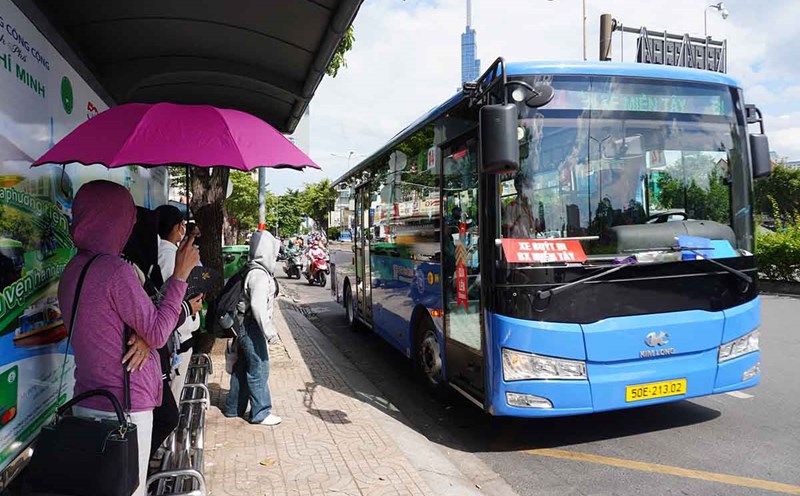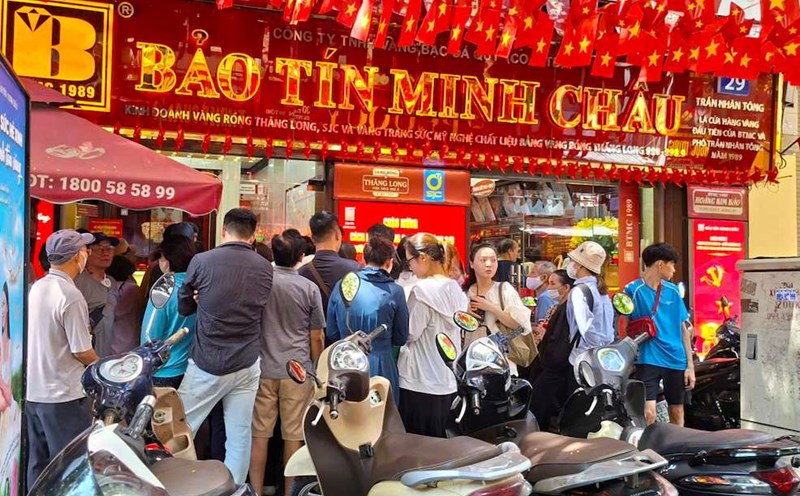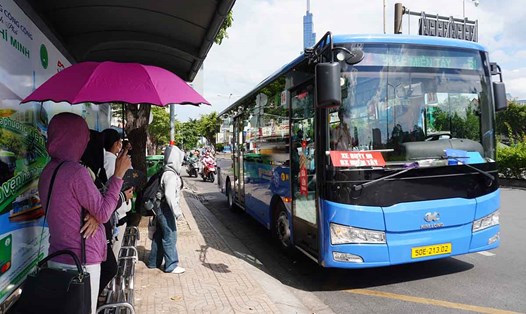Recently, the Ho Chi Minh City Department of Construction has proposed building a legal corridor to develop bus infrastructure, including arranging separate lanes, priority lanes and standardizing vehicle design. This proposal received much attention from people in Ho Chi Minh City.
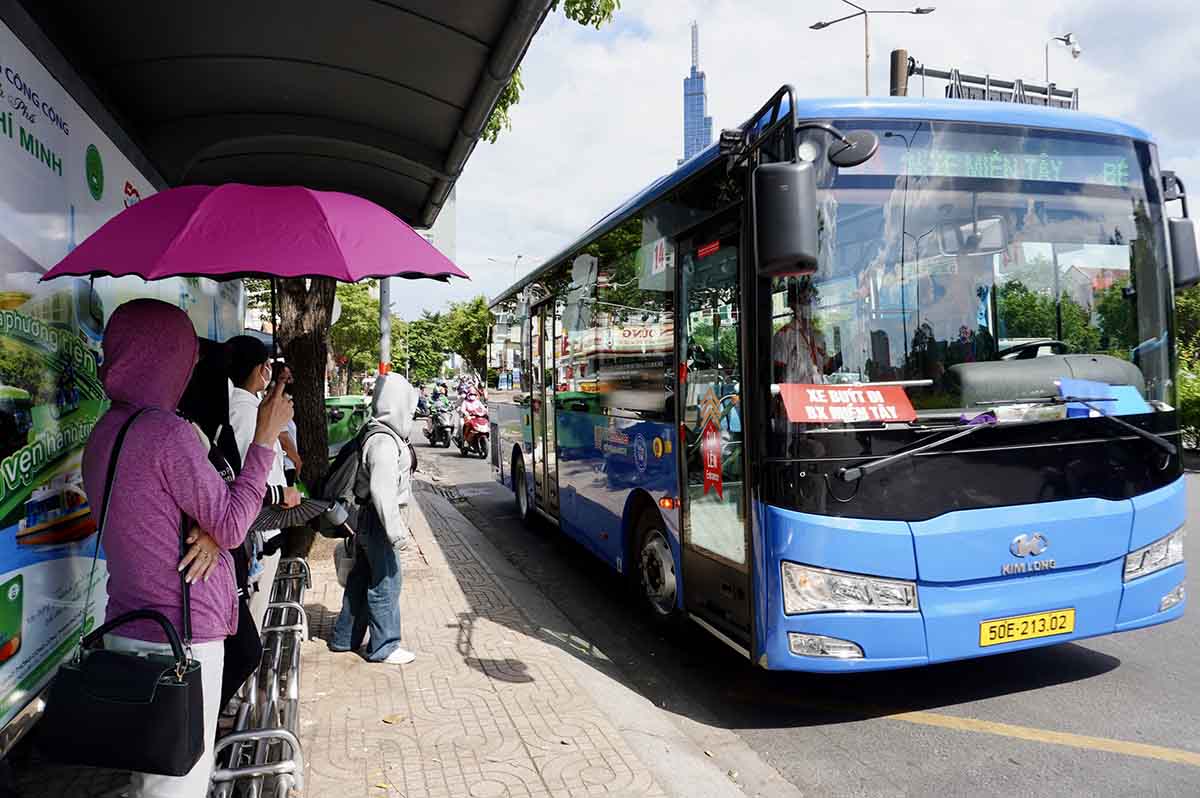
Also in the proposal, Ho Chi Minh City will increase 95 bus routes and standardize vehicle design, including the equipment of surveillance cameras, cashless payment equipment and fire prevention and fighting systems, to improve operational efficiency and service quality for passengers.
Talking to Lao Dong newspaper reporters, Dr. Tran Quang Thang - Director of the Ho Chi Minh City Institute of Economics and Management, commented that arranging separate lanes for buses is a strong and appropriate step if Ho Chi Minh City really wants to develop public transport and reduce dependence on private vehicles.
According to Mr. Thang, arranging private lanes has many benefits such as helping to increase the speed and reliability of buses, encouraging people to switch from private vehicles to public vehicles, towards green and sustainable transportation.
However, he also pointed out a series of challenges if the transport infrastructure is not synchronous, there is a risk of traffic jams if the lane is not properly separated and there is a lack of connectivity between types of transport.
HCMC needs to be methodical and have a comprehensive plan. If it is half-done and not synchronized, it will easily be counterproductive, Mr. Thang emphasized.
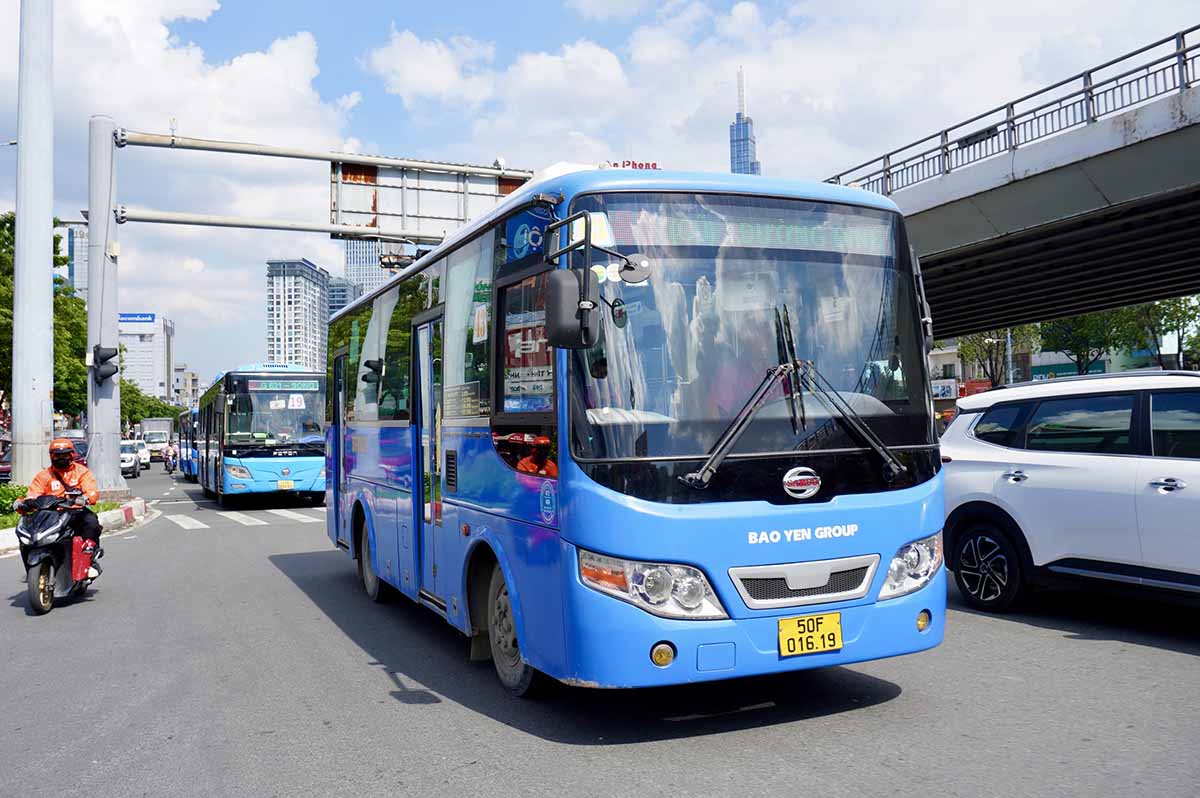
Dr. Tran Quang Thang also shared that Ho Chi Minh City should take the people as the center, have a clear roadmap, integrate buses with metro, river bus, public bicycles... to create an effective transport network.
"From international experience, models in Brazil, Colombia, the UK and Korea all show that if there is good planning, clear sanctions and flexible solutions, separate lanes for buses can be clearly effective.
Ho Chi Minh City can completely learn and adjust according to the actual conditions of each area to develop a modern and friendly public transport system," said Mr. Thang.

